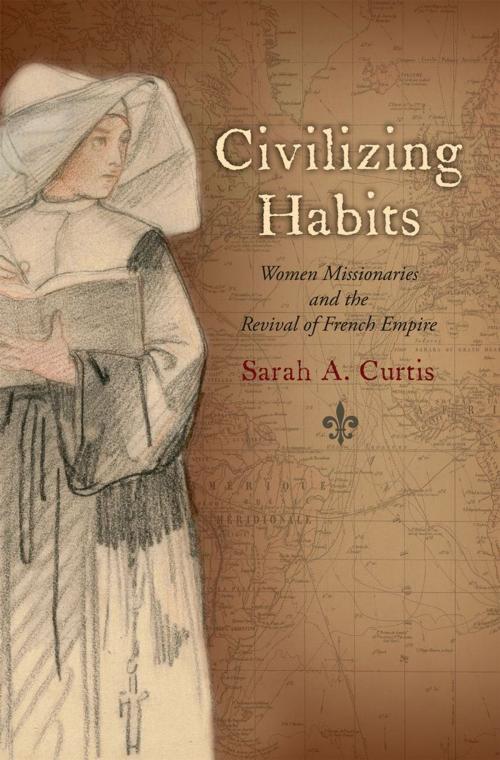Civilizing Habits
Women Missionaries and the Revival of French Empire
Nonfiction, Religion & Spirituality, Reference, History, France, Social & Cultural Studies, Social Science, Gender Studies, Women&| Author: | Sarah A. Curtis | ISBN: | 9780199889471 |
| Publisher: | Oxford University Press | Publication: | September 3, 2010 |
| Imprint: | Oxford University Press | Language: | English |
| Author: | Sarah A. Curtis |
| ISBN: | 9780199889471 |
| Publisher: | Oxford University Press |
| Publication: | September 3, 2010 |
| Imprint: | Oxford University Press |
| Language: | English |
Civilizing Habits explores the life stories of three French women missionaries--Philippine Duchesne, Emilie de Vialar, and Anne-Marie Javouhey--who crossed boundaries, both real and imagined, to evangelize far from France's shores. In so doing, they helped France reestablish a global empire after the dislocation of the Revolution and the fall of Napoleon. They also pioneered a new missionary era in which the educational, charity, and health care services provided by women became valuable tools for spreading Catholic influence across the globe. Philippine Duchesne traveled to former French territory in Missouri in 1818 to proselytize among Native Americans. Thwarted by the American policy of removing tribes even further west, she turned her attention to girls' education on the frontier. Emilie de Vialar followed French troops to Algeria after its conquest and opened missions throughout the Mediterranean basin in the mid-nineteenth century. Prevented from direct evangelization, she developed strategies and subterfuges for working among Muslim populations. Anne-Marie Javouhey evangelized among Africans in the French slave colonies, including a utopian settlement in the wilds of French Guiana. She became a rare Catholic proponent of the abolition of slavery and a woman designated a "great man" by the French king. Paradoxically, through embracing religious institutions designed to shield their femininity, these women gained increased authority to travel outside France, challenge church power, and evangelize among non-Christians, all roles more commonly ascribed to male missionaries. Their stories teach us about the life paths open to religious women in the nineteenth century and how both church and state benefitted from their initiative to expand the boundaries of faith and nation.
Civilizing Habits explores the life stories of three French women missionaries--Philippine Duchesne, Emilie de Vialar, and Anne-Marie Javouhey--who crossed boundaries, both real and imagined, to evangelize far from France's shores. In so doing, they helped France reestablish a global empire after the dislocation of the Revolution and the fall of Napoleon. They also pioneered a new missionary era in which the educational, charity, and health care services provided by women became valuable tools for spreading Catholic influence across the globe. Philippine Duchesne traveled to former French territory in Missouri in 1818 to proselytize among Native Americans. Thwarted by the American policy of removing tribes even further west, she turned her attention to girls' education on the frontier. Emilie de Vialar followed French troops to Algeria after its conquest and opened missions throughout the Mediterranean basin in the mid-nineteenth century. Prevented from direct evangelization, she developed strategies and subterfuges for working among Muslim populations. Anne-Marie Javouhey evangelized among Africans in the French slave colonies, including a utopian settlement in the wilds of French Guiana. She became a rare Catholic proponent of the abolition of slavery and a woman designated a "great man" by the French king. Paradoxically, through embracing religious institutions designed to shield their femininity, these women gained increased authority to travel outside France, challenge church power, and evangelize among non-Christians, all roles more commonly ascribed to male missionaries. Their stories teach us about the life paths open to religious women in the nineteenth century and how both church and state benefitted from their initiative to expand the boundaries of faith and nation.















